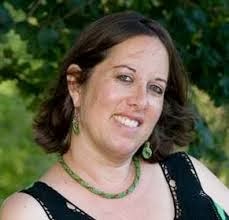Theme for the Day: Writing Tips from Dorit Sasson
As a writer for
the academic market, here are a few tips for trying to break into this market:
If
possible, sign on with an agent. When I submitted the proposal
on my own, I went to each website and looked up the proposal guidelines. It
took forever to get a response from busy editors.
In the academic
market, there is just ONE agent who can help you in the entire US believe it or
not, and this agent of mine has been around
for a long time. He is respected by many educational publishers and gets
responses faster than I would ordinarily get on my own.
Another great
reason to procure an agent is that he is better able to negotiate royalties. In
the academic/educational market, the royalties are very low so every percent
increase can work in your favor.
2. If you’re writing a book for teachers, use
the conversational tone. This is especially important when incorporating
pedagogical theory. Teachers have been drained and inundated with theory during
their undergraduate and graduate studies and the last thing they want is
another theory book.
Speak
to your target audience like a “colleague” so that you really provide them with
highly useful and practical information they can find rather easily.
Some publishers,
specifically those who work with universities and colleges, really want a
combination of both theoretical pedagogy and practical information. If you
decided to work with these publishers, get a hold of the books they published
in the past to get a feel of how their authors dealt with this issue.
This book has helped me at each stage of the “publishing and writing game.” When I first started writing, I needed some guidance on getting started by approaching various journals.
Later, I expanded my
target market, by writing educational resource material and then finally, to
the book writing educational market. As I write in my story, “How I
Got My First Book Contract” finding an agent for my book definitely
helped, but I needed to know specific tricks of the trade since writing for the
field of literacy works very differently than other markets such as adult and
children’s trade markets.
Please follow Day 5 of this tour
tomorrow at http://www.thelearningleaf.com




Comments